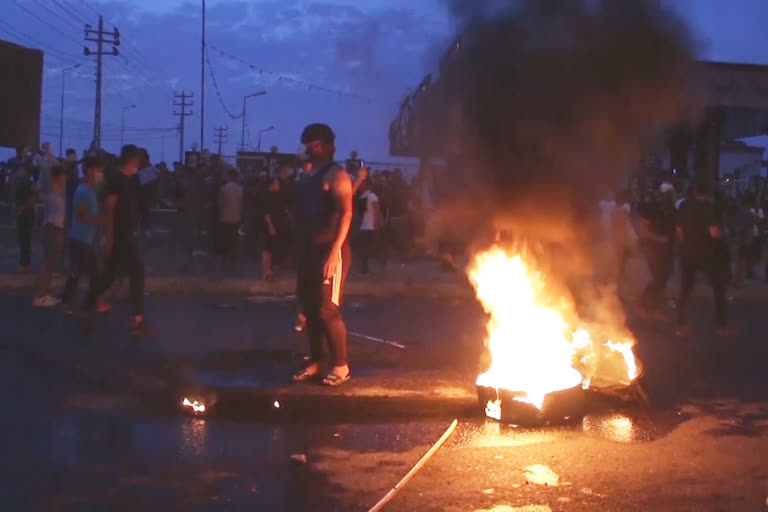Baghdad: More than 60 people have died in renewed anti-government protests across Iraq, officials said on Saturday, with clashes breaking out as demonstrators turned their fury against the government.
The death toll from protests this month has soared to 220, including dozens killed since Friday as they torched government buildings or offices belonging to factions of the Hashed al-Shaabi paramilitary force.
The demonstrations first erupted on October 1, with protesters rallying against government corruption and unemployment, while a second wave broke out late on Thursday.
The latest round of demonstrations has been notably violent, with 63 people killed and more than 2,000 wounded over just two days, according to the Iraqi Human Rights Commission.
Three protesters were killed in the capital Baghdad on Saturday, with medics and officials reporting trauma wounds sustained by tear gas canisters lobbed at demonstrators.
But the majority of victims have been in the country's Shiite-majority south, where protesters torched dozens of provincial government buildings, party offices, and Hashed centres.
On Saturday, three people were shot dead while setting fire to a local official's home in the southern province of Dhi Qar, a police source told the media.
The previous night, 12 protesters died in Diwaniyah while setting fire to the headquarters of the powerful Badr organisation.
Top Hashed commanders have threatened 'revenge' after their offices were attacked, and denounced those they said aimed at sowing 'discord and chaos' in the country.
In a bid to contain the violence, security forces announced curfews across most of Iraq's southern provinces but brief protests still took place in Diwaniyah, Nasiriyah, Babylon, and Najaf.
In the southern port city of Basra, however, protesters failed to come out in large numbers after security forces strictly enforced a curfew.
The Hashed was founded in 2014 to fight the Islamic State group but its factions have since been ordered to incorporate into the state security services.
"Public anger is directed at them in addition to governorate councils, for they were the obvious face of the regime," wrote Harith Hasan, a senior fellow at the Carnegie Middle East Center.
But the attacks could also hint at political rivalries between the Hashed and populist cleric Moqtada al-Sadr, who has thrown his weight behind the demonstrations.
"The Sadrists, especially in their traditional strongholds such as Missan, saw this an opportunity to act against competing militias," such as Asaib Ahl al-Haq, Badr and Kataeb Hezbollah, Hasan said on Twitter.
The United Nations said it was 'tragic' to see renewed violence but also warned against 'armed spoilers'.
"Armed entities sabotaging the peaceful demonstrations, eroding the government's credibility and ability to act, cannot be tolerated," said the UN top official in Iraq, Jeanine Hennis-Plasschaert.
Protesters gathered in Baghdad's emblematic Tahrir (Liberation) Square on Saturday morning despite efforts by riot police to clear them with tear gas.
